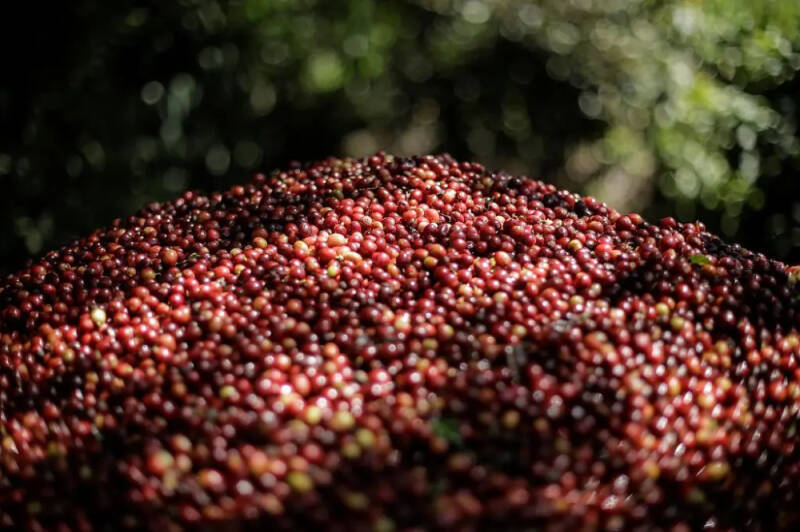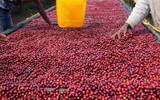Costa Rican government will increase fair compensation and welfare for coffee harvesting workers
Thousands of immigrant coffee harvesters will now receive industrial accident insurance and increase the sickness and maternity insurance program launched in 2021, according to the National newspaper. All because migrant workers account for more than 75% of seasonal harvest workers in Costa Rica.
As a long-term bastion of the Costa Rican economy, coffee plantations are slowly being phased out by new residential developments, reflecting an accelerated trend driven by unstable international coffee markets, a weak dollar, climate change and labour supply challenges.

Some exporters say that with global supply, coffee prices are likely to fall in the future, and the premium for Costa Rican coffee is likely to fall. In December 2023, the price of Costa Rican coffee was 65% higher than the market on average. However, the price has been falling from $3.20 per pound in January 2022 to $2.30 in December. And the dollar has fallen 27% against Costa Rica's Cologne in the past 18 months, eroding export profits.
At present, immigrants account for 75 per cent of the 20000 workers who follow the harvest season across Costa Rica, most of them from Nicaragua and some from Panama. During the intensive harvest months of November, December and January, these are all crucial. Usually involving entire families to support the entire coffee supply chain Costa Rica is committed to making growers more beneficial than intermediaries and exporters.

The manager of CoopeLibertad, a cooperative of nearly 1200 coffee producers in Costa Rica's Central Valley, said that in this challenging era, Costa Rican coffee must adhere to social and environmental responsibility, as well as high quality. Migrant workers today feel highly valued, give priority to the social sustainability of Costa Rican coffee, and enhance Costa Rica's reputation in the international coffee market. These things make us different in the world and provide fair and favorable conditions for pickers, which is also good for the coffee industry as a whole.
The Deputy Director of the Costa Rican Coffee Institute (ICAFE) said that the establishment of fair relations in the industry was a unique legal framework. New insurance benefits have been designed for coffee workers, and health insurance was first offered three years ago to provide sickness and maternity insurance for pickers and their families.
In 2023, changes in weather patterns forced earlier harvests, disrupted seasonal workers' schedules and reduced fast production, and Panamanian protests blocked roads and blocked workers from Panama to Costa Rica. And Honduras has also seen a large number of immigrants, resulting in a lack of labour to collect coffee berries, creating a competitive relationship with Costa Rica. These conditions led to an estimated 12.6 per cent decline in the harvest, estimated at 1672881 bushels. It will be the smallest harvest in a century, less than half what it was in 2000. When the plan is implemented, it will greatly enhance the competitiveness of Costa Rica and benefit the development of Costa Rican coffee.
Important Notice :
前街咖啡 FrontStreet Coffee has moved to new addredd:
FrontStreet Coffee Address: 315,Donghua East Road,GuangZhou
Tel:020 38364473
- Prev

Introduction of washed coffee beans in Yega Fischer, a coffee-producing area in Ethiopia
Speaking of coffee, I have to mention Ethiopia, which has a long history of coffee and is recognized as the birthplace of coffee. And there are a wide variety of coffee. It is estimated that there are 10000 to 15000 coffee varieties in Ethiopia today, but most of them have not yet been formally identified. Ethiopia
- Next

Can a hand-pressed coffee machine extract espresso without electricity? What's the difference between a hand press and an Italian coffee maker?
During the Spring Festival, Qianjie did a thorough cleaning of the stores! As a result, a dusty hand-pressed coffee machine was found in a corner full of sundries. So, today's Qianjie to test whether the hand-pressed coffee machine can extract espresso as delicious as the espresso machine. In fact, as early as 1947, rice
Related
- What grade does Jamaica Blue Mountain No. 1 coffee belong to and how to drink it better? What is the highest grade of Blue Mountain coffee for coffee aristocrats?
- What are the flavor characteristics of the world-famous coffee Blue Mountain No. 1 Golden Mantelin? What are the characteristics of deep-roasted bitter coffee?
- Can I make coffee a second time in an Italian hand-brewed mocha pot? Why can't coffee be brewed several times like tea leaves?
- Hand-brewed coffee flows with a knife and a tornado. How to brew it? What is the proportion of grinding water and water temperature divided into?
- What is the difference between Indonesian Sumatra Mantinin coffee and gold Mantinin? How to distinguish between real and fake golden Mantelin coffee?
- What does bypass mean in coffee? Why can hand-brewed coffee and water make it better?
- Unexpected! Ruixing Telunsu lattes use a smoothie machine to foam milk?!
- % Arabia's first store in Henan opens into the village?! Netizen: Thought it was P's
- Does an authentic standard mocha coffee recipe use chocolate sauce or powder? Mocha Latte/Dirty Coffee/Salty Mocha Coffee Recipe Share!
- What is the difference between Vietnam egg coffee and Norway egg coffee? Hand-brewed single product coffee filter paper filter cloth filter flat solution!

